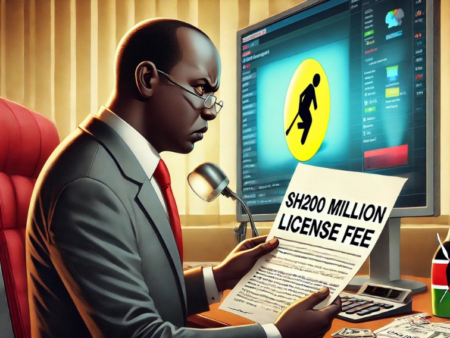The Betting Control and Licensing Board (BCLB) of Kenya has raised alarms over the surge in illegal gambling activities, both online and in physical locations, during a detailed presentation to the National Assembly’s Departmental Committee on Administration and Internal Security. This revelation comes at a time when the digital shift in betting is more pronounced than ever.
Rising Tide of Unregulated Betting
In his address, BCLB director Peter Mbugi emphasized the overwhelming shift towards online platforms, stating, “80 per cent of gambling activity in Kenya, like in many other countries is online and less brick and mortar.”
However, this transition to digital is double-edged; while expanding the gambling landscape, it also intensifies the challenge of policing these activities.
Technological Tethers and Legal Laxities
Mbugi expressed concerns over the existing regulatory framework, which he believes is inadequate to curb the modern forms of illegal betting thriving on offshore websites and unauthorized slot machines.
“Given the scenario, deployment of adequate technology is the only sure way to adequately monitor and effectively regulate the industry,” he suggested. This call for technological advancement is set against a backdrop of outdated laws, with the current gambling legislation dating back to 1966, which Mbugi criticized for its lack of deterrence.
A Cry for Adequate Funding
The discussion also spotlighted the stark discrepancy between the funds allocated to the BCLB and the revenue the government earns from legal gambling operations. Mbugi highlighted a significant imbalance, noting that while the board was allocated Sh109.6 million for the 2023-24 fiscal year, the government collected a hefty Sh24.4 billion in gambling taxes.
He pointed out similar figures from the previous fiscal year, underscoring a recurring theme of insufficient funding, which hampers the board’s operational capabilities.
Staffing and Training Shortfalls
Constraints in staffing and resources add to the financial woes. Mbugi mentioned “inadequate staffing, training, tooling and kitting as well as exposure” as critical barriers to executing the board’s mandate effectively. These limitations not only affect the enforcement of gambling regulations but also diminish the board’s ability to adapt to evolving market dynamics.
From Leisure to Livelihood
Mbugi also touched on the broader social implications of gambling in Kenya, noting its shift from a leisure activity to a source of livelihood for many, driven by unemployment and poverty. This transition highlights the growing dependence on gambling as a financial lifeline rather than mere entertainment, adding layers of complexity to the regulatory challenges.
The BCLB, established under the Betting, Lotteries, and Gaming Act of 1966, continues to navigate these multifaceted issues with the aim of controlling and licensing betting and gaming premises, authorizing public lotteries, and eradicating illegal gambling. However, as the digital age propels the gambling sector to new heights, the urgency for a regulatory revamp and enhanced support from the government becomes increasingly apparent.

